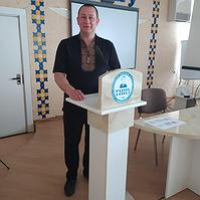Open Access Policy refers to a set of principles and guidelines aimed at providing unrestricted access to scholarly research and literature. It promotes the free availability and unrestricted use of research outputs, enabling researchers, students, and the general public to access, read, download, and distribute scholarly articles without financial or legal barriers. In this response, I will provide you with an overview of the history and latest resolutions related to Open Access Policy.
について
Welcome to the forefront of innovative learning and knowledge dissemination through the dedicated pages of IgMin Research. In this section, we dive into the dynamic realm of Educational Technology, exploring the strategies, tools, and methodologies that shape modern education and foster effective learning experiences. Join us on a journey that redefines the landscape of teaching and learning.
Revolutionizing Learning and Teaching
In an era of rapid technological advancements, Educational Technology emerges as a catalyst for transforming traditional education. This segment of IgMin Research delves into the intersection of education and technology, examining how digital tools, online platforms, and interactive resources are enhancing engagement, personalization, and access to knowledge. From virtual classrooms to adaptive learning, we navigate the ever-evolving world of educational innovation.
編集者
Engineering Group (10)
Open Access Policy refers to a set of principles and guidelines aimed at providing unrestricted access to scholarly research and literature. It promotes the free availability and unrestricted use of research outputs, enabling researchers, students, and the general public to access, read, download, and distribute scholarly articles without financial or legal barriers. In this response, I will provide you with an overview of the history and latest resolutions related to Open Access Policy.
Open Access Policy refers to a set of principles and guidelines aimed at providing unrestricted access to scholarly research and literature. It promotes the free availability and unrestricted use of research outputs, enabling researchers, students, and the general public to access, read, download, and distribute scholarly articles without financial or legal barriers. In this response, I will provide you with an overview of the history and latest resolutions related to Open Access Policy.
Open Access Policy refers to a set of principles and guidelines aimed at providing unrestricted access to scholarly research and literature. It promotes the free availability and unrestricted use of research outputs, enabling researchers, students, and the general public to access, read, download, and distribute scholarly articles without financial or legal barriers. In this response, I will provide you with an overview of the history and latest resolutions related to Open Access Policy.
Open Access Policy refers to a set of principles and guidelines aimed at providing unrestricted access to scholarly research and literature. It promotes the free availability and unrestricted use of research outputs, enabling researchers, students, and the general public to access, read, download, and distribute scholarly articles without financial or legal barriers. In this response, I will provide you with an overview of the history and latest resolutions related to Open Access Policy.
Open Access Policy refers to a set of principles and guidelines aimed at providing unrestricted access to scholarly research and literature. It promotes the free availability and unrestricted use of research outputs, enabling researchers, students, and the general public to access, read, download, and distribute scholarly articles without financial or legal barriers. In this response, I will provide you with an overview of the history and latest resolutions related to Open Access Policy.
Open Access Policy refers to a set of principles and guidelines aimed at providing unrestricted access to scholarly research and literature. It promotes the free availability and unrestricted use of research outputs, enabling researchers, students, and the general public to access, read, download, and distribute scholarly articles without financial or legal barriers. In this response, I will provide you with an overview of the history and latest resolutions related to Open Access Policy.
Open Access Policy refers to a set of principles and guidelines aimed at providing unrestricted access to scholarly research and literature. It promotes the free availability and unrestricted use of research outputs, enabling researchers, students, and the general public to access, read, download, and distribute scholarly articles without financial or legal barriers. In this response, I will provide you with an overview of the history and latest resolutions related to Open Access Policy.
Open Access Policy refers to a set of principles and guidelines aimed at providing unrestricted access to scholarly research and literature. It promotes the free availability and unrestricted use of research outputs, enabling researchers, students, and the general public to access, read, download, and distribute scholarly articles without financial or legal barriers. In this response, I will provide you with an overview of the history and latest resolutions related to Open Access Policy.
Open Access Policy refers to a set of principles and guidelines aimed at providing unrestricted access to scholarly research and literature. It promotes the free availability and unrestricted use of research outputs, enabling researchers, students, and the general public to access, read, download, and distribute scholarly articles without financial or legal barriers. In this response, I will provide you with an overview of the history and latest resolutions related to Open Access Policy.

IgMin 科目を探索する
現在トレンドになっている記事はどれですか?
研究論文
- On how Doping with Atoms of Gadolinium and Scandium affects the Surface Structure of Silicon
- A Machine Learning-based Method for COVID-19 and Pneumonia Detection
- Maternal Knowledge and Practices in Caring for Children under Five with Pneumonia: A Cross-Sectional Study in Vietnam
- Abrasive Wear in Some High Fe-Cr-C Alloy in Cement Powder
- The Influence of Dynamical Downscaling and Boundary Layer Selection on Egypt’s Potential Evapotranspiration using a Calibrated Version of the Hargreaves-samani Equation: RegCM4 Approach
- Enhancing Missing Values Imputation through Transformer-Based Predictive Modeling
Advertisement














